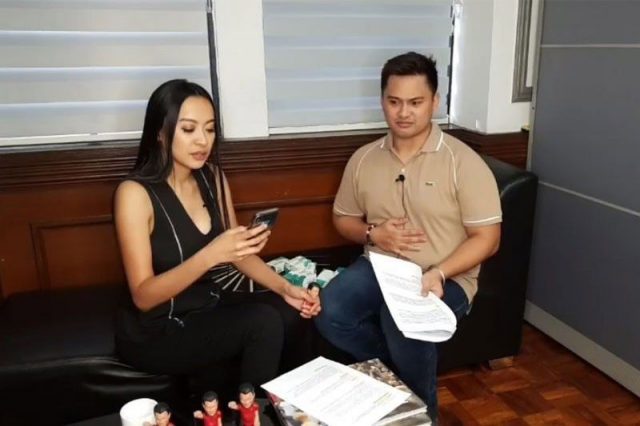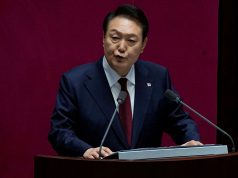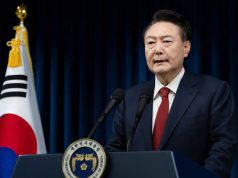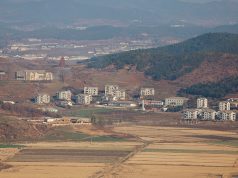Controversial blogger Andrew Olivar will face a criminal complaint over his online post alleging a bomb threat on EDSA on September 21, the day commemorating the declaration of martial law.
Olivar did not directly comment on the new complaint and insisted in a new Facebook status that he will keep supporting President Rodrigo Duterte.
“I’m a true DDS (Duterte Die-hard Supporter),” Olivar wrote.
Masaktan man ako ng masasakit na salita, ijudge nyo man ako at sirain ang pagkatao ko, ok lang yun ang mahalaga ay…
Posted by Andrew Olivar on Sunday, September 23, 2018
Before claiming of a bomb threat last week, Olivar had been courting controversies in recent weeks for a suggestive video on federalism he made with fellow blogger, Assistant Secretary Mocha Uson of the president’s communications team, and another video where he appears to mock deaf people.
Olivar had to deal with backlash online for the controversies, but the complaint over the social media prank on a historical commemoration gave him something worse to worry about.
In a now-deleted post, Olivar posted hearsay on possible bombing along EDSA, where the historic People Power Revolution took place in 1986. It was an apparent attempt to discourage people from attending protests there.
He related the threat to the infamous attack on the Liberal Party campaign rally in 1971 or the Plaza Miranda bombing that nearly killed all of the party candidates. The party blamed the administration of then President Ferdinand Marcos, who proceeded to declare martial law in 1972.
Last week, nationwide demonstrations were staged to call out authoritarian tendencies of those in power that are akin to the Marcos. Some colleges and universities, coincidentally, were also receiving bomb scares.
‘No intention to incite fear’
Olivar explained that he did not mean to incite fear among the Filipinos with his message and rather, he advises that they take care of themselves.
“I have no intention to incite fear among the Filipinos, especially that the rallies yesterday were not just attended by the yellows (supporters of the Liberal Party), but also DDS (die-hard Duterte supporters),” the social media personality claimed at a press conference last Saturday.
Based on reports, Olivar was accompanied by Uson when he submitted himself to the National Capital Region Police headquarters at Camp Bagong Diwa in Taguig.
Authorities, however, did not confirm the bomb threat despite Olivar’s claims. He maintained that he did nothing wrong.
“Baka ang sabihin ng iba, kapag nag-sorry ako, na talagang inamin kong nagkamali ako, na sinadya ko. Nag-sorry lang ako kung may mga na-alaarma ako o iba ang pagkaintindi sa sinabi ko,” he said.
On Monday, Philippine National Police chief Oscar Albayalde made an update that Olivar will be charged with criminal liability over violations of Presidential Decree 1727 series of 1980.
If convicted, he faces imprisonment of not more than five years or a fine of at least P40,000.00.
Unlike Uson who faces complaints before the Office of the Ombudsman that may reach the Sandiganbayan, Olivar may face the regional trial court over the complaint.
The controversial blogger
Olivar had been regularly appearing in Uson’s videos on her Facebook page Mocha Uson blog.
However, he first came to the spotlight last month over the botched federalism video that showed him making lewd gestures and chanting “i-pederalismo,” which earned the ire of many.
It is still unclear if he is an employee of Malacañang or not, as most of the recordings on the blog were shot there.
Early in September, the tandem were at it again when a promotional video of their online radio program offended persons with disability, particularly those who cannot speak.
The Philippine Federation of the Deaf then filed criminal raps against Uson at the Office of the Ombudsman for violating the provisions of the following laws—the amended Magna Carta for Disabled Persons, the Code of Conduct and Ethical Standards for Public Officials and Employees, and Cybercrime Prevention Act.










